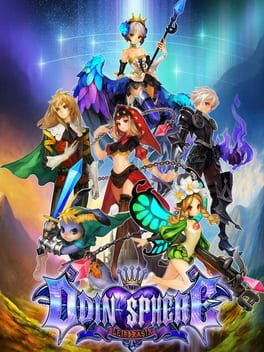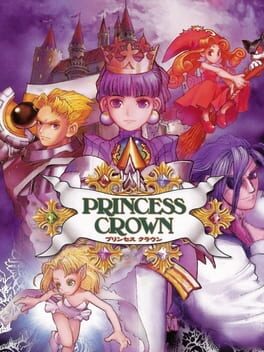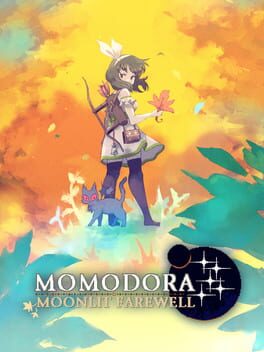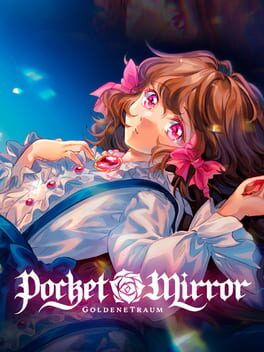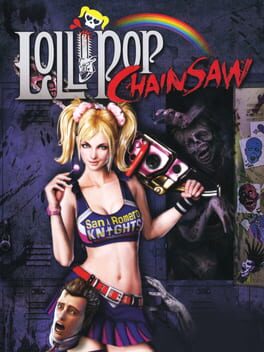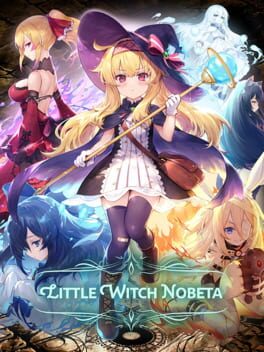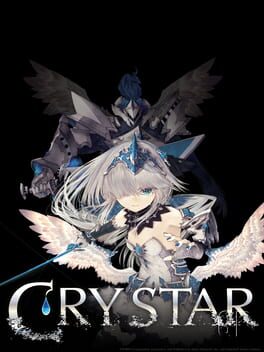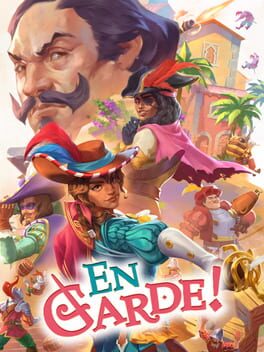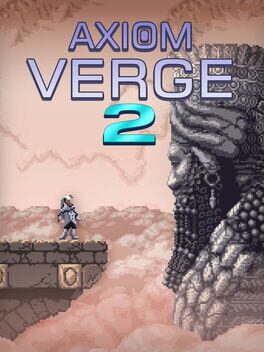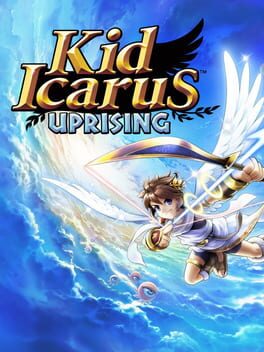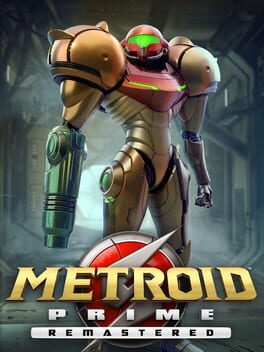JulietStMoon
2024
I'm tempted to hold off on review because I hear the postgame is so robust, but I have to many thoughts, so here I am after hitting credits. I apologize for the unstructured ramble; I'll update this review when I've done postgame stuff.
Metroidvania is the genre that I think I like way more than I actually do like: I used to call it my favorite genre, and I STILL have plenty of games I consider favorites and replay over and over. But in truth, I feel like I'm in love with an idealization of the genre that rarely gets met by any game not called Super Metroid: Sequence being only a suggestion, with alternate paths and sequence breaks accomplished not just by glitches and wall clips, but mastery of mechanics and their nuances to master the environment. For whatever reason, the whole genre seems to have collectively decided that abilities, a persistent map, and collectibles are all that matter, with most of them feeling like tightly linear affairs pulling you on a string through a world that feels like it's begging to be truly trekked through, but disallowed by the developer for a myriad of reasons that I probably understand but think are silly.
Animal Well is Super Metroid 2. Not the only Super Metroid 2, but certainly one of the rare ones. (I would not be surprised if the solo developer was VERY inspired by my favorite Super Metroid 2, by the way. I'll leave it unnamed and see how many people guess it. Hint: It's not even a real metroidvania.)
The atmosphere? Moody. The ability upgrades? Unique to the point that I'm not sure I've seen a single one of them in another metroidvania, AND most of them with multiple hidden uses. The handholding? Nonexistent. The "intended" sequence? Hell if I know; I legit could not tell you how much of what I did on my one run so far was the path of least resistance or a sequence break.
There's just so damn much in this game that encourages you to get creative with what you have to see what works, and chances are if you can logically conceptualize something working within the bounds of the game's rules, it will, indeed, work (with or without tons of retry and maybe some luck). The result is the best metroidvania I've played in an absurdly long time, meeting my idealization of the genre in a way almost no others do.
And the fact that what I describe seems to have been a near-universal reaction among people playing it, that this game that doesn't tell you anything and expects you to get creative to progress is based? Man, oh man, I really hope metroidvania developers take note.
Metroidvania is the genre that I think I like way more than I actually do like: I used to call it my favorite genre, and I STILL have plenty of games I consider favorites and replay over and over. But in truth, I feel like I'm in love with an idealization of the genre that rarely gets met by any game not called Super Metroid: Sequence being only a suggestion, with alternate paths and sequence breaks accomplished not just by glitches and wall clips, but mastery of mechanics and their nuances to master the environment. For whatever reason, the whole genre seems to have collectively decided that abilities, a persistent map, and collectibles are all that matter, with most of them feeling like tightly linear affairs pulling you on a string through a world that feels like it's begging to be truly trekked through, but disallowed by the developer for a myriad of reasons that I probably understand but think are silly.
Animal Well is Super Metroid 2. Not the only Super Metroid 2, but certainly one of the rare ones. (I would not be surprised if the solo developer was VERY inspired by my favorite Super Metroid 2, by the way. I'll leave it unnamed and see how many people guess it. Hint: It's not even a real metroidvania.)
The atmosphere? Moody. The ability upgrades? Unique to the point that I'm not sure I've seen a single one of them in another metroidvania, AND most of them with multiple hidden uses. The handholding? Nonexistent. The "intended" sequence? Hell if I know; I legit could not tell you how much of what I did on my one run so far was the path of least resistance or a sequence break.
There's just so damn much in this game that encourages you to get creative with what you have to see what works, and chances are if you can logically conceptualize something working within the bounds of the game's rules, it will, indeed, work (with or without tons of retry and maybe some luck). The result is the best metroidvania I've played in an absurdly long time, meeting my idealization of the genre in a way almost no others do.
And the fact that what I describe seems to have been a near-universal reaction among people playing it, that this game that doesn't tell you anything and expects you to get creative to progress is based? Man, oh man, I really hope metroidvania developers take note.
NOTE: This review is about classic mode (aka PS2 mode) on hard, with all refinement options turned off.
This is one of those weird scenarios where most gamers "in the know" with regards to notable releases in the 2000s are aware of Odin Sphere, but the conversation kinda begins and ends with how pretty it is in a "WHOA COOL ROBOT!" sort of way. Why aren't we actually... talking about this game, a game with a mechanical identity that's absolutely peerless (even in attempt!), and a narrative that's shockingly effective and affective?
From the bizarre "platformless action-platformer" movement design to the inventory management, to the alchemy, to the leveling system, to the positional-centric combat—All carefully made to be only EXACTLY as complex as they need to be to promote meaningful decision-making—this is a game that even in spite of its flaws feels like Vanillaware's magnum opus, which is INSANE when this is literally their first game (under their current name, anyway). And yet here we are.
It's after midnight and I gotta be up in 4 hours ("If death cannot be avoided, then I welcome my fate.") and I'm rambling incoherently but just... this is already one of my new favorite games of all time y'all, fucking play it. It's on every PlayStation device released since 2007, you have no excuse unless you're Xbox's Strongest Soldier in the Console War or whatever.
NOTE: Will definitely have more to say about both Classic AND Refined mode whenever I play and finish the latter; this remake FASCINATES me.
This is one of those weird scenarios where most gamers "in the know" with regards to notable releases in the 2000s are aware of Odin Sphere, but the conversation kinda begins and ends with how pretty it is in a "WHOA COOL ROBOT!" sort of way. Why aren't we actually... talking about this game, a game with a mechanical identity that's absolutely peerless (even in attempt!), and a narrative that's shockingly effective and affective?
From the bizarre "platformless action-platformer" movement design to the inventory management, to the alchemy, to the leveling system, to the positional-centric combat—All carefully made to be only EXACTLY as complex as they need to be to promote meaningful decision-making—this is a game that even in spite of its flaws feels like Vanillaware's magnum opus, which is INSANE when this is literally their first game (under their current name, anyway). And yet here we are.
It's after midnight and I gotta be up in 4 hours ("If death cannot be avoided, then I welcome my fate.") and I'm rambling incoherently but just... this is already one of my new favorite games of all time y'all, fucking play it. It's on every PlayStation device released since 2007, you have no excuse unless you're Xbox's Strongest Soldier in the Console War or whatever.
NOTE: Will definitely have more to say about both Classic AND Refined mode whenever I play and finish the latter; this remake FASCINATES me.
1997
Considering I'm entirely Japanese-illiterate, this is quite possibly the deepest pull I'll ever make in my gaming career: A PSP port of a Sega Saturn exclusive action-RPG that never received an English translation despite requiring quite a bit of reading to progress.
I don't think I can emphasize enough how much this is one of the coolest games I've played in a long time, with its combat system of menu-driven/real-time inventory management juxtaposed against what I can only describe as a simplified fighting game. This combined with the fact that I don't really play fighting games makes for an especially novel experience that feels so different from the action games I'm used to playing, and it kinda strikes me that I can't think of another game with quite this blend of elements outside of Vanillaware. Kingdom Hearts maybe, from what I hear? Possibly Dragon's Dogma?
Either way, extremely neat game, and I'm still not done, because beating the main scenario with Gradriel unlocks up to three(!!!) mini campaigns featuring other characters, who have their own stories and play very differently, that intersect with the main story. Because, y'know, this totally isn't an Odin Sphere predecessor, of course not!
UPDATE: I have since beaten the three additional mini-quests with separate characters; perhaps I'll fill in some talk about those when I have time and am not feeling lazy.
I don't think I can emphasize enough how much this is one of the coolest games I've played in a long time, with its combat system of menu-driven/real-time inventory management juxtaposed against what I can only describe as a simplified fighting game. This combined with the fact that I don't really play fighting games makes for an especially novel experience that feels so different from the action games I'm used to playing, and it kinda strikes me that I can't think of another game with quite this blend of elements outside of Vanillaware. Kingdom Hearts maybe, from what I hear? Possibly Dragon's Dogma?
Either way, extremely neat game, and I'm still not done, because beating the main scenario with Gradriel unlocks up to three(!!!) mini campaigns featuring other characters, who have their own stories and play very differently, that intersect with the main story. Because, y'know, this totally isn't an Odin Sphere predecessor, of course not!
UPDATE: I have since beaten the three additional mini-quests with separate characters; perhaps I'll fill in some talk about those when I have time and am not feeling lazy.
As one of the most mechanically obsessive fans of the previous entry, Momodore: Reverie Under the Moonlight, Momo 5 is a difficult game to judge and discuss. The series has historically been more on the Cave Story side of truly homemade indie efforts than, say, the Shovel Knight one: That is, games that are made by like one person and really feel like they were made by just one person. Momo 4 felt like a good sweet spot of being a self-serious commercial product and while still retaining that homemade feel.
Momo 5 is a pretty neat metroidvania and has a number of its own cool tricks. Sprint and the positional management it brings in particular is such a weirdly refreshing mechanic in a world of action games that are obsessed with timing parries and dodges as the start and end point of defensive measures.
But that's just not quite enough to make me forget the equipment system and tonal melancholy and hands-off storytelling that are practically completely absent here. Momo 5 certainly has all the new features and QoL and presentational refinements that will have starry-eyed gamers breathlessly declaring it a straight upgrade over the previous game, but I think to do that, one has to completely forget what previous Momodora games were actually like, and "safe" isn't a word I'd use to describe any of them except this new one.
I don't think it's a bad game, mind you. I enjoyed my time with it and I will continue to play as there's more to discover. But I think it's worth thinking about why Momodora went from being an expressive affair I would describe as provoking to just another metroidvania I would describe as pretty good. And more widely, why a safer experience seems to be the inevitable fate of all franchises that go on long enough with enough success, even one as small as this.
Momo 5 is a pretty neat metroidvania and has a number of its own cool tricks. Sprint and the positional management it brings in particular is such a weirdly refreshing mechanic in a world of action games that are obsessed with timing parries and dodges as the start and end point of defensive measures.
But that's just not quite enough to make me forget the equipment system and tonal melancholy and hands-off storytelling that are practically completely absent here. Momo 5 certainly has all the new features and QoL and presentational refinements that will have starry-eyed gamers breathlessly declaring it a straight upgrade over the previous game, but I think to do that, one has to completely forget what previous Momodora games were actually like, and "safe" isn't a word I'd use to describe any of them except this new one.
I don't think it's a bad game, mind you. I enjoyed my time with it and I will continue to play as there's more to discover. But I think it's worth thinking about why Momodora went from being an expressive affair I would describe as provoking to just another metroidvania I would describe as pretty good. And more widely, why a safer experience seems to be the inevitable fate of all franchises that go on long enough with enough success, even one as small as this.
I literally don't know what to say about this game; there's just so much and I can tell my journey with it is far from over, even though I just finished NG+ today. But it's my Game of the Year, so I felt like I had to post a review. Please consider playing Pocket Mirror, even if you aren't into horror games or adventure games. I'm an ignorant fool not even into the genre, but this is just special, I can tell.
2012
Finally finished on Very Hard Story mode, and I think this legit might be my favorite hack n slash next to Bayonetta, now?
Lately I've been having a midlife action game Cri𝕊𝕊𝕊is where I realize I think the idea of a single button universal defensive maneuver based entirely on timing and i-frames is honestly pretty damn boring. Between Bayonetta and Dark Souls popularizing that concept, things like positional management have fallen by the wayside a bit.
Not so with Lollipop Chainsaw! Your jump has some meager i-frames, and that's IT: EVERYTHING else is positional management: EVERYTHING. Your defense, your attack, everything you do is all about getting yourself in position to manipulate your enemies to do serious damage to them, and it feels sublime .
It's weird, because action games nowadays feel so very analog when it comes to the offensive game, but EXTREMELY digital when it comes to the defensive game, and Lollipop Chainsaw is an (albeit decade old) example where both sides cohere into something that feels multifaceted despite honestly not having a super complex player kit.
And I like that; I like that a lot.
Lately I've been having a midlife action game Cri𝕊𝕊𝕊is where I realize I think the idea of a single button universal defensive maneuver based entirely on timing and i-frames is honestly pretty damn boring. Between Bayonetta and Dark Souls popularizing that concept, things like positional management have fallen by the wayside a bit.
Not so with Lollipop Chainsaw! Your jump has some meager i-frames, and that's IT: EVERYTHING else is positional management: EVERYTHING. Your defense, your attack, everything you do is all about getting yourself in position to manipulate your enemies to do serious damage to them, and it feels sublime .
It's weird, because action games nowadays feel so very analog when it comes to the offensive game, but EXTREMELY digital when it comes to the defensive game, and Lollipop Chainsaw is an (albeit decade old) example where both sides cohere into something that feels multifaceted despite honestly not having a super complex player kit.
And I like that; I like that a lot.
2020
"What if Dark Souls but nothing like Dark Souls?" is something that describes way too few obviously Souls-inspired games, but is honestly one of the best ways to do so in my opinion. In this case, the "nothing like Souls" part involves being a hybrid third-person shooter and platformer more than anything else, with just a bit of old-fashioned Japanese action game DNA thrown in for good measure.
The result works shockingly well and way more masterfully than I expect from this out-of-nowhere indie or AA developer I had never heard of before, with a wealth of unique mechanics and pretty fantastic player design. Moving your little witch around feels so good and so analog that I'm tempted to call it a form of shmoovement, especially when it comes to using midair melee attacks to extend jump range and save stamina (SO GOOD!). And as your ability to platform and enhance your ability to do so with midair jumps and dodges and speed-enhancing spells continues to grow, it feels better and better to the point where you feel like a master of the environment, leaping over bottomless abysses without any fear to speak of. It's something that feels lost in games that aren't called Lunistice or Pseudoregalia and yet here we are with a (much simpler) approximation of that in an UwU soulslike of all things.
This is to say nothing of the combat system itself, which is largely based on feedback loops. You see, killing enemies causes them to drop EXP ("souls"), but also health and magic drops too. And in a way that reminds me just a bit of what little I've played of Ninja Gaiden Black, you can use the magic drops to simply refill your magic meter by letting them touch you, or get a head start on casting another spell by hitting the cast button before that happens. This gives you a boost to filling your cast meter, meaning less time spent charging up. And if you know what you're doing, you can instantly refill OP charged up spells in a constant loop until everything in the room is obliterated. And that's without even getting into the other ways you can speed up cast time, such as with your melee attacks or with perfect dodge rolls (of course you have that)... or how your different elemental spells give you secondary buffs besides just using charged attacks.
The result of these two things is an adrenaline-fueled gameplay loop where you jump and run around arenas that often have a pretty sweet sense of verticality while picking off your foes in increasingly frantic manners and it kicks ass. THAT SAID...
...This is a very strange case of a game where they got the player design down, the unique mechanics down... so why weren't they able to properly incentivize a diverse use of the combat mechanics as they exist? Once in a while you get combat scenarios that are clearly designed with one specific spell in mind, but it's very rare that I found a scenario where mixing spells was incentivized in any meaningful way. There are no special effects besides "do damage" despite the elements, so there's not much any reason for the player to do anything except stick with the first order optimal strategy, unless they just want to mix things up for its own sake (please understand this isn't a "OOH there's no incentive to get better thing; this is a scenario where there's nothing to "get better" at in this regard).
And I think that's a damn shame, because playing this game feels GOOD. Executing the feedback loops feels GOOD. But how I wish there were more meaningful reasons to engage with different spells in a single fight, because that would make a world of difference to bring this very cool combat system together. It's the only thing keeping the game from 5 stars, personally.
The result works shockingly well and way more masterfully than I expect from this out-of-nowhere indie or AA developer I had never heard of before, with a wealth of unique mechanics and pretty fantastic player design. Moving your little witch around feels so good and so analog that I'm tempted to call it a form of shmoovement, especially when it comes to using midair melee attacks to extend jump range and save stamina (SO GOOD!). And as your ability to platform and enhance your ability to do so with midair jumps and dodges and speed-enhancing spells continues to grow, it feels better and better to the point where you feel like a master of the environment, leaping over bottomless abysses without any fear to speak of. It's something that feels lost in games that aren't called Lunistice or Pseudoregalia and yet here we are with a (much simpler) approximation of that in an UwU soulslike of all things.
This is to say nothing of the combat system itself, which is largely based on feedback loops. You see, killing enemies causes them to drop EXP ("souls"), but also health and magic drops too. And in a way that reminds me just a bit of what little I've played of Ninja Gaiden Black, you can use the magic drops to simply refill your magic meter by letting them touch you, or get a head start on casting another spell by hitting the cast button before that happens. This gives you a boost to filling your cast meter, meaning less time spent charging up. And if you know what you're doing, you can instantly refill OP charged up spells in a constant loop until everything in the room is obliterated. And that's without even getting into the other ways you can speed up cast time, such as with your melee attacks or with perfect dodge rolls (of course you have that)... or how your different elemental spells give you secondary buffs besides just using charged attacks.
The result of these two things is an adrenaline-fueled gameplay loop where you jump and run around arenas that often have a pretty sweet sense of verticality while picking off your foes in increasingly frantic manners and it kicks ass. THAT SAID...
...This is a very strange case of a game where they got the player design down, the unique mechanics down... so why weren't they able to properly incentivize a diverse use of the combat mechanics as they exist? Once in a while you get combat scenarios that are clearly designed with one specific spell in mind, but it's very rare that I found a scenario where mixing spells was incentivized in any meaningful way. There are no special effects besides "do damage" despite the elements, so there's not much any reason for the player to do anything except stick with the first order optimal strategy, unless they just want to mix things up for its own sake (please understand this isn't a "OOH there's no incentive to get better thing; this is a scenario where there's nothing to "get better" at in this regard).
And I think that's a damn shame, because playing this game feels GOOD. Executing the feedback loops feels GOOD. But how I wish there were more meaningful reasons to engage with different spells in a single fight, because that would make a world of difference to bring this very cool combat system together. It's the only thing keeping the game from 5 stars, personally.
2018
Is your heart still asleep?
Fine. It can wait for a bit. My wish doesn't have to reach you just yet. Not until you wake up.
Whether yesterday was unhappy. Or today is unhappy. Or tomorrow will be unhappy...
For every tear that is shed... rather, because tears will be shed, there may still be smiles in the future.
There's no law that enforces kindness in the world. The world is empty. The world is unreasonable. But, however, because of that...
You must give meaning to your tears through your will. You must give meaning to the sadness and pain you endure. Because it'll be unrequited. Because it is unfair.
Most importantly, use your tears to smile. I'm sure your future will be wonderful.
So give meaning to the tears.
You get exactly one paragraph on mechanics from me: It's repetitive cornmeal. I don't care HOW much of a mechanics-focused action game or RPG labber you think you are: You aren't finding anything special here. Trust me, I tried. All you need to know is that everything works in a (to my experience) bug-free manner, but the actual design is still frustrating (such as attacks not properly snapping to enemies and with imprecise controls). You spend way more time in repetitive dungeon-crawling than the systems' depth support, so if you play this game, you are doing so for experience of playing the story on offer. Hell, I even recommend setting the difficulty to easy so you spend less time on the dungeon crawls.
That aside, let's talk about other stuff.
There's no way I can be objective or measured about this: Crystar is one of my favorite games of all time because of literally everything besides the act of playing it, and that's saying something coming from me, someone who's about gameplay first and foremost always. The game presents a compelling story about death, grief, mourning, and how sorrow can transform us for better or worse. And it does so with fleshed-out characters that never feel too far into anime stereotype territory and a plot that isn't afraid to do great and terrible things to them. What's more, the plot is both complicated and sensible, with threads being resolved in intuitive ways full of twists that don't even feel like ass-pulls (at least for the bits that really matter).
This is to say nothing of the presentation: The English voice dub is excellent, so much so that I hesitate to think of playing it in Japanese on my next playthrough (especially when the game has that age-old problem of not translating combat dialogue and whatnot, which I feel gives a degree of context and personality to the characters). Brianna Knickerbocker absolutely kills the role as the main character Rei Hatada, with every sigh, gasp, sniffle, sob, and line delivery perfectly capturing how she's feeling at every moment. The rest of the cast does some real heavy lifting too.
The Sakuzyo soundtrack is also a delight, delivering tracks ranging from sadly beautiful to exciting when the time calls for it. And the art is just genuinely gorgeous. Both these things especially come together in Rei's room, the main menu that may seriously be my favorite main menu in video games now, presenting little "slideshow" vignettes of what a depressed, heartbroken Rei does at home in her room all day.
As someone experiencing a great deal of grief right now myself, this game just hits different, now. All its themes of depression and survivor's guilt and grief transforming us in great and terrible ways speak to me on a visceral level that I appreciated before, but not quite as much as I do now with intimate knowledge of how it feels. Being brutally honest, I was sobbing my eyes out during the credits, even though I already knew how the story went from my first playthrough going on almost 4 years ago, now.
I know this is all honestly a bunch of word salad, me blubbering about how much I love this game without actually getting into specifics, and I'm sorry about that. I'm truly not at my best right now. But I had to get something out there the same day I beat the game: Crystar is a rare example of a game that comes around once in a blue moon, seemingly nothing special on the surface, but truly one of the most magical experiences you can have while playing a video game that's less than stellar to play. I used to tell people I can't recommend it to anyone, but now I instead say:
Give it a shot. You might find something special here.
Fine. It can wait for a bit. My wish doesn't have to reach you just yet. Not until you wake up.
Whether yesterday was unhappy. Or today is unhappy. Or tomorrow will be unhappy...
For every tear that is shed... rather, because tears will be shed, there may still be smiles in the future.
There's no law that enforces kindness in the world. The world is empty. The world is unreasonable. But, however, because of that...
You must give meaning to your tears through your will. You must give meaning to the sadness and pain you endure. Because it'll be unrequited. Because it is unfair.
Most importantly, use your tears to smile. I'm sure your future will be wonderful.
So give meaning to the tears.
You get exactly one paragraph on mechanics from me: It's repetitive cornmeal. I don't care HOW much of a mechanics-focused action game or RPG labber you think you are: You aren't finding anything special here. Trust me, I tried. All you need to know is that everything works in a (to my experience) bug-free manner, but the actual design is still frustrating (such as attacks not properly snapping to enemies and with imprecise controls). You spend way more time in repetitive dungeon-crawling than the systems' depth support, so if you play this game, you are doing so for experience of playing the story on offer. Hell, I even recommend setting the difficulty to easy so you spend less time on the dungeon crawls.
That aside, let's talk about other stuff.
There's no way I can be objective or measured about this: Crystar is one of my favorite games of all time because of literally everything besides the act of playing it, and that's saying something coming from me, someone who's about gameplay first and foremost always. The game presents a compelling story about death, grief, mourning, and how sorrow can transform us for better or worse. And it does so with fleshed-out characters that never feel too far into anime stereotype territory and a plot that isn't afraid to do great and terrible things to them. What's more, the plot is both complicated and sensible, with threads being resolved in intuitive ways full of twists that don't even feel like ass-pulls (at least for the bits that really matter).
This is to say nothing of the presentation: The English voice dub is excellent, so much so that I hesitate to think of playing it in Japanese on my next playthrough (especially when the game has that age-old problem of not translating combat dialogue and whatnot, which I feel gives a degree of context and personality to the characters). Brianna Knickerbocker absolutely kills the role as the main character Rei Hatada, with every sigh, gasp, sniffle, sob, and line delivery perfectly capturing how she's feeling at every moment. The rest of the cast does some real heavy lifting too.
The Sakuzyo soundtrack is also a delight, delivering tracks ranging from sadly beautiful to exciting when the time calls for it. And the art is just genuinely gorgeous. Both these things especially come together in Rei's room, the main menu that may seriously be my favorite main menu in video games now, presenting little "slideshow" vignettes of what a depressed, heartbroken Rei does at home in her room all day.
As someone experiencing a great deal of grief right now myself, this game just hits different, now. All its themes of depression and survivor's guilt and grief transforming us in great and terrible ways speak to me on a visceral level that I appreciated before, but not quite as much as I do now with intimate knowledge of how it feels. Being brutally honest, I was sobbing my eyes out during the credits, even though I already knew how the story went from my first playthrough going on almost 4 years ago, now.
I know this is all honestly a bunch of word salad, me blubbering about how much I love this game without actually getting into specifics, and I'm sorry about that. I'm truly not at my best right now. But I had to get something out there the same day I beat the game: Crystar is a rare example of a game that comes around once in a blue moon, seemingly nothing special on the surface, but truly one of the most magical experiences you can have while playing a video game that's less than stellar to play. I used to tell people I can't recommend it to anyone, but now I instead say:
Give it a shot. You might find something special here.
2019
For as much as the "tender frog house" indie game gets a bad rap from certain circles (for... some reason), this one is real good at picking its small suite of mechanics with a deft hand. The result is something that undeniably feels like a video game without feeling like it's just a compulsory counterbalance to the wonderful presentation the game actually cares about (Stray says "hi").
2023
This is an action game about cheating above all else: Adalia de Valador's direct moveset is very limited, with most of the depth existing in how she can use her environment to double-cross her foes... And these arenas and environmental details are just RIPE with opportunities for her to do so.
The game does rarely falter when it pits the player against certain enemies in rooms with little more than Adalia's direct moveset to work with, but otherwise its fight is noble in a modern action game landscape often terrified of making encounters featuring anything besides a flat circular arena.
And don't sleep on Arena Mode; it kicks ass!
The game does rarely falter when it pits the player against certain enemies in rooms with little more than Adalia's direct moveset to work with, but otherwise its fight is noble in a modern action game landscape often terrified of making encounters featuring anything besides a flat circular arena.
And don't sleep on Arena Mode; it kicks ass!
2009
Hard to know what to say here; Demon's Souls is an old favorite that's both the best and worst thing ever always, and gets more of both with age. How I both yearn for more games this uncompromising, and thank God we don't get them.
One thing's for certain: I wish Fromsoftware in particular would make games like this again.
One thing's for certain: I wish Fromsoftware in particular would make games like this again.
2021
My initial complaints about imprecise enemy interactions and general polish are still there, but if this isn't a masterclass metroidvania in LITERALLY every other way, then I don't know what is. Axiom Verge 2 has everything I desperately wish every other metroidvania did and more: Open-ended progression, a wealth of truly unique power-ups, interesting ways of altering enemies and the environment, a second world, and above all else, truly diabolical exploration that genuinely makes me think. This genre desperately needs more Axiom Verge 2s.
2012
I've let this one age gracefully in my memory for fear that an older me would no longer like it, but I'm happy to say it's still one of my favorite games of all time.
From its platform to its genre to its controls to its tone to its depth to its risk/reward, Uprising is a game never wholly anything except defined by its duality.
From its platform to its genre to its controls to its tone to its depth to its risk/reward, Uprising is a game never wholly anything except defined by its duality.
I'm happy to say Metroid Prime in any form is still an experience I enjoy with evocative and immersive ideas that still feel unique today. Also classic controls that hold up surprisingly well!
However, it clearly using Ocarina of Time as a blueprint for a steady 3D conversion also meant very binary solutions and progression while being dramatically longer than any Metroid that came before. Which just... isn't ideal, and I want to know what the hell happened at Nintendo that made them create a game like Super Metroid 1 (one) time and then go, "NEVER AGAIN"?
However, it clearly using Ocarina of Time as a blueprint for a steady 3D conversion also meant very binary solutions and progression while being dramatically longer than any Metroid that came before. Which just... isn't ideal, and I want to know what the hell happened at Nintendo that made them create a game like Super Metroid 1 (one) time and then go, "NEVER AGAIN"?
2010
I don't actually have meaningful commentary to say here; just that this probably does feel like Bungie Halo at its best, at least from a relatively casual standpoint. Still not my favorite, but a great time for the more tactical shooting and memorable story bits. Heroic feels way better balanced than Halo 3, DMR absolute rules all day every day, and sprint is simply garbage; I would give anything to have the default movement speed of previous games back.

